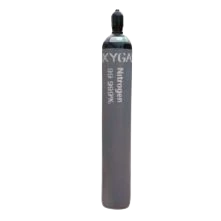BIS Certification for Welded Low Carbon Steel Cylinders for Toxic and Corrosive Gases– IS 3196 (Part 4)

Welded low carbon steel cylinders for storing toxic and corrosive gases are essential for safely handling hazardous materials. These cylinders, exceeding 5 liters in water capacity, must meet strict guidelines to ensure their integrity and performance. IS 3196 (Part 4) provides comprehensive specifications for these cylinders, addressing material strength, design features, and safety measures to mitigate risks associated with the storage of toxic and corrosive gases. BIS certification ensures that these cylinders comply with national standards, offering peace of mind for manufacturers and consumers regarding product safety.
IS 3196 (Part 4) specifies the requirements for welded low carbon steel cylinders used for the storage of toxic and corrosive gases. These cylinders are crucial for industries where hazardous gases need to be contained and transported. Given the high risks associated with toxic and corrosive substances, IS 3196 (Part 4) ensures that these cylinders are designed to safely withstand internal pressure, corrosion, and potential leaks. BIS certification provides manufacturers with the assurance that their cylinders are safe, reliable, and compliant with Indian safety standards.
Why is BIS Certification Necessary for Welded Low Carbon Steel Cylinders?
BIS certification for welded low carbon steel cylinders ensures that the cylinders used for storing toxic and corrosive gases adhere to the safety and performance standards outlined in IS 3196 (Part 4). These cylinders must be manufactured from high-quality materials that are resistant to corrosion and capable of withstanding the high-pressure environment created by liquefied gases. Compliance with these standards is critical to prevent accidents, such as leaks or ruptures, which could pose a significant risk to human health, the environment, and property. The ISI mark provides assurance that the cylinders have undergone rigorous testing and quality checks.
Overview of Indian Standard IS 3196 (Part 4)
Indian Standard IS 3196 (Part 4) outlines specifications for welded low carbon steel cylinders used to store toxic and corrosive gases. The standard emphasizes material requirements, ensuring the use of low carbon steel with specific mechanical properties to guarantee strength, flexibility, and corrosion resistance. It also defines design and construction guidelines, mandating safety features such as pressure relief valves and leak-resistant welding. Additionally, the cylinders must undergo rigorous testing, including pressure and leak tests, to verify their structural integrity. Safety mechanisms like pressure regulators and valves are required to prevent over-pressurization and leakage. The standard ensures that the cylinders are durable enough to withstand the corrosive effects of the gases they contain, offering long-term reliability and safety.
Process for BIS Certification
The process for obtaining BIS certification for welded low carbon steel cylinders under IS 3196 (Part 4) involves the following steps:
Application Submission: Manufacturers submit an application with technical details and product specifications.
Document Review:
Factory Inspection:
Sample Testing:
Certification Grant:
To Know The Process in Detail, Please Visit:
Under BIS Registration Products ISI and CRS
Documents Required for BIS Certification
To apply for BIS certification, manufacturers need to submit the following documents:
● Application form
● Manufacturing process details
● Quality control plan
● Test reports from BIS-approved laboratories
● Factory layout and equipment details
● Proof of business registration
● Product specifications and technical details
● Declaration of conformity to Indian standards
Additionally, manufacturers may be required to provide proof of compliance with environmental and safety regulations, depending on the specific type of product being certified.
BIS ISI Mark Certification Costing And Timeline
Conclusion
BIS certification for welded low carbon steel cylinders used for toxic and corrosive gases under IS 3196 (Part 4) guarantees the safety, durability, and reliability of these critical components. These cylinders must meet stringent design, material, and performance standards to safely store hazardous gases. By obtaining BIS certification, manufacturers demonstrate their commitment to producing high-quality, safe products, reducing the risks associated with gas storage. EVTL India offers expert consultancy to guide manufacturers through the BIS certification process, ensuring that their cylinders comply with IS 3196 (Part 4) and are ready for market use.
Free Call Back
Latest News & Update
📅 BIS Critical Component List (CCL) Updates for Solar PV Modules
🕒 BIS Fee Concessions for MSMEs and Startups | EVTL India
📅 Guidelines for Implementation of Essential Requirements for Security of CCTV
🕒 Omnibus Technical Regulation (OTR) Amendment Order, 2025
🕒 Extension of Timeline for Filing Annual Returns by Battery Producers
📅 Extension of Timeline for Filing Quarterly and Annual Returns for E-Waste
🕒 Extension of Concurrent Running Period for IS 302-1: 2008 and IS 302 (Part 1): 2024
🕒 BIS Guidelines for Grant of Licence (GoL) | EVTL India
📅 CPCB Guidance on filing of Application, Fees and more
🕒 CPCB Notification on Labelling of Plastic Packaging
📅 Mandatory Compliance for Input Materials of Steel and Steel Products for Imports
🕒 BIS Guidelines for Scheme-X Certification for OTR-Regulated Products
📅 BIS Upgrades Product Certification License Numbers to 10-Digit Series
Why Choose EVTL INDIA
Expertise in Indian Regulatory Standards
End-to-End Support
Trusted by Top Indian & Global Brands
Fast Processing & Transparent Pricing
Strong Liaison with Indian Authorities
Company Profile


















